What is a video game remake? My easy and short answer: A video game coded with recreated content (graphics, sounds, etc) a second time.
Wikipedia’s short explanation is:
“A video game remake is a game closely adapted from an earlier title, usually for the purpose of modernizing a game for newer hardware and contemporary audiences.“ Source: Wikipedia,Video game remake
Both definitions are far too simple and do not distinguish remakes from clones, ports, sequels and shameless rip-offs. Games of the last type often resemble closely an ancestor without officially admitting this. Let me describe how I would differentiate those from remakes.
A port is the same game adapted for a different platform, e.g. from Microsoft Windows to Linux, while using most of the code, game and art and trying to spend as little work as possible. Normally this is done by the original developers or a third person with a contractual relationship and with access to the source materials. A company specialized in porting games to Linux is Linux Game Publishing. In contrast, most noncommercial remakes start from scratch with no business relationship to the original developers.
Sequels are sometimes the same game sold a second time with minimal changed content or mechanics, e.g. with Electronic Arts Sports series like FIFA, the next version often could be an update for the engine and player database of the previous one. Most game series evolve during their life time, some slowly mutating and other having more drastic changes to theme, mechanics or even genre (Star Control/strategy → Star Control 2/adventure).
When something really looks or plays like a certain other game you know, it’s a clone (as long as it is not a remake ;)). A famous German video game clone is The Great Giana Sisters. Sure sometimes there are genre-defining games like Tower Defense and it’s hard not to look alike. But if it is too close to its inspiration, the changes too little and you get the feeling that it’s a “me too” release, just call it a “rip-off”. A remake does not need to conceal that it is a copy, it wants to be a copy of the source, and normally true remakes happen long after the trend.
So, the slightly longer answer is that a remake is a game coded a second time or its game content (art, sounds, music, story, game elements) was created a second time, or if you have a complete remake everything was done again from scratch. The intention is to recreate the original game either as exactly as possible and/or to make a better version of the same game.
Often remakes are named the same or similar to the source or they pick a fancy or famous term used in the original game’s content, e.g Ur-Quan Master is a remake of Star Control 2, and as the name was trademarked, the project chose the name of the main antagonists as the new name.
Why are there remakes and who makes them?
First let us talk about the consumers, the player, you! Why does anybody play remakes?
Nostalgia is probably the most common reason. You played the original game years ago and remember how much you liked it. And then you want to play it again. Reasons why you want to play a remake instead of the original game are:
- The original game went out of sale long ago or is out of stock and you cannot obtain it.
- You have not a system for it (damn.. it’s a C128 game or needs a 3Dfx Voodoo card with Win95c running on a Pentium Pro75)
- You cannot get it running, for whatever reasons (installing a DOS Virtual Machine and optimizing conventional memory is not so easy)
- The game is simply not working anymore, perhaps because it depends on some server in the internet which has been shutdown or the copy protection prevents running it. The remake is superior. Probably the game was adapted to modern technologies and works natively on your system or the graphics, sounds, game play or user handling were improved, bugs fixed, game play rebalanced. Short, it’s still the same game only better.
- It may be cheaper, or even free at all. And everybody likes free stuff ;) Or you just found this remake and never heard of the original, so you simply don’t care.
Fans and Companies
So, who makes them?
The first group are “independent fans”. They love the original game and would like to see it running on modern platforms or with updates to today’s technologies. But when there is no remake or port on the horizon some capable people start their own and sometimes they find more interested people that start collaborating on their project and it gains momentum. I ascribe those people for whom reviving the game is their prime ambition and they are working on that because nobody else did or is doing anything similar. In music terms the result will probably be a “tribute”.
The next ones are money orientated companies. Earning money is not evil per se and many projects were started because the developers were fans of the original game. Still, many commercial remakes are mostly done because it’s easy to sell something that is/was popular and sold well, especially if even the name sounds like the original one. Simple exploitation of the reputation is one thing. Next thing is the uninspired part, developing a good and interesting game and balancing it can be a hard task, so again it’s easy to reuse something existing e.g. the UFO series is essentially the same base game as the old X-COM series including the theme but still deviating from X-COM gameplay. And many more X-COM clones & remakes are in the work.
There’s one slightly different case here, it’s when the original developers recreate one of their own games. Due to financial or technical constraints they were not able to craft the original game like they dreamt it to be. And, later, with new technologies or better funding they can finally make the game they wanted to create. On the other hand there are “game series” in which every game repeats the previous game like the UFO-series or Electronic Arts sports (FIFA, NHL, NBA, NFL, etc) series. It’s probably the easiest way to earn money if the audience accepts paying for annual updates.
Commercial projects have a big advantage if they get sufficiently funded as they almost always offer more quality over their hobby counterparts. Often it’s only a matter of time spent on the project for sure but you have more time if you work full-time than only a few hours during your leisure time.
What characterizes a remake? (a try to make a classification system)
A few thoughts on attributes more or less special to remakes.
Completeness
Completeness defines how much of the original game managed to get into the last released remake version. Commercial game remakes tend to be more complete than non-commercial projects. That’s understandable as commercial games are only released when completed, as nobody will buy incomplete products. Fan projects tend to release often during development to keep fans happy and to get feedback.
Project Status
I think the project states you find most often are “planning”, “work in progress”, “finished” and “abandoned”. For me finished means that the main work has ended and the game is still maintained. Abandoned means that the project either died prematurely or there were no signs of activity for a longer period or was finished and became unmaintained. These states don’t tell you anything about the completeness, you can have an abandoned and very incomplete project or a very complete project which has not even left the planning phase. In my experience non-commercial projects are less likely to reach a finished state.
Standalone
Not always is a remake a complete package. Some remakes are program-only releases and rely on you to provide some game content and most of the time they use the original game files. At first this may look pointless, but often these reimplemented game engines provide support for different or newer platforms or improved visuals like higher display resolutions, accelerated graphics or similar features. Some even implement network/multiplayer support in former single-player games or games without complete network features (hotseat, modem, play-by-mail) and sometimes lack AI functionality. For some reasons there are more enthusiastic programmers out there than artists. OSS projects split sometimes engine and content into separate projects. Some bundle the original content with their code, but this may cause legal problems. As an engine clone alone is not sellable to consumers commercial games only provide complete new packages.
Legal State
For a commercial release it’s easy, if you want reuse the old name, content, code, look,etc then either own or acquire the necessary rights or face the consequences (get sued). Non commercial have some more liberties. Some projects, e.g. the Ur-Quan-Masters project, got the original intellectual property donated (e.g. released as Public Domain), other avoid problems by doing a clean room implementation and avoiding anything that could cause copyright/trademark infringements like reusing the title, content or even names or descriptions (weapons, technologies, races, etc) within the game. Some others rely on the grey zone called “orphaned work”, or better known as abandonware, and hope that nobody objects their work. And some are even more relaxed and simply think or hope that making a remake is ok (that’s non-judgmental meant). I’m not a lawyer but some projects are distributing original material within their release. This puts them, the distributors and you, the consumer, at risk to be called a software pirate, as long as you don’t have a license for the source data.
Open Source / Closed Source
Closed source means you are not given access to the source code/materials while with open source they are publicly available. (Note the Open Source Initiative defines this stricter). Commercial games are closed source but the owners may release their sources after their games go out of sale so new projects may pick them up. I dare to claim that most non-commercial remakes are also open source projects, but some are “only” freeware, not publishing their sources for reasons not always given. Some have license constraints due to the use of sources or third-party libraries.
Openness
This point is more interesting for programmers and artists willing to help. Some projects are actively seeking for help while others are open for anyone who wants to lend a hand. There are projects consisting of a well-practised team and are not so open as they fear to attract windbags and people bringing quarrel with them. And finally there are the one man shows, people who think that nobody could do the work as good as them (e.g. the C-Evo Core project)
Faithfulness
How faithful is a remake? Is it exactly the same? This means no improvements to graphics, sounds or resolution, no changes to the game mechanics. Few remakes are so true. Most try to adapt the game carefully to modern technologies and sometimes this needs updating graphics as well. This is often necessary as nobody wants to play games in their old 320x200px resolution on his modern 1920×1080 screen and simple scaling would not make the graphics better. Or MODEM play could be replaced network play. The next step after adapting is improving or tweaking the game to correct errors or imbalances in the original game, improving the UI or even extending content but still sticking to the roots.
Some remakes diverge more but still resemble their idols by keeping selected parts of it. It’s debatable if these are still true remakes, but that depends on case by case and on your personal opinion on what makes a good remake.
Which remakes are out there?
This is a small assorted list of remakes I know or value. Not very representative.
Open Imperium Galactica (Open-IG) [Imperium Galactica]
Let me start with one remake I am eagerly anticipating and was just completed: Open-IG an Imperium Galactica (1997) remake. It’s an Open-Source project and the game is written in Java, so it’s available for many platforms. The game has been updated to support bigger displays and arbitrary resolutions. The downloaded package contains everything including the videos and an automatic update tool. Legal Status? Good question…
The Ur-Quan Masters [Star Control 2]
If you liked Star Control 2, released in 1992, which is an interesting and humorous Sci-Fi Action & Adventure mix with some minor strategy and economical parts, then you want to play “The Ur-Quan Masters”. Not a real remake, the original source and game content was released to the community ten years ago and has been ported to many platforms since then. The engine has been updated and offers higher resolution by scaling (hq2x works wonders), the content stayed the same. The game title is still trademarked so the project had to be renamed. There are also a HD-Mod for better graphics a new fan made mod sequel on the horizon.
Crimson Fields and Advanced Strategic Command [Battle I, Battle Isle II/III ]
Crimson Fields and Advanced Strategic Command (ASC) are remakes or clones based on Battle I and Battle Isle II/III’s game mechanics and graphics. Both are fully playable and contain all needed data. Sadly they lack the nice combat graphics and the original missions and story. The graphics are not very up to date, but you get a bigger overview with higher screen sizes. Oh, and they are open source and multi-platform, too.
NAEV [Escape Velocity, Solar Winds]
NAEV is an action 2D space shooter/simulation not unlike Escape Velocity or Solar Winds. There are rumours that NAEV is actually an acronym for “Not Another Escape Velocity”, but this is only speculation ;) Although far from completion this open source project already offers many entertaining hours in a expanding universe (at least expanding with every version). The game is multi-platform and includes the necessary game data.
One step further in full 3D you can play is Wing Commander Privateer Gemini Gold. The original game is, of course, Wing Commander Privateer (1993). Gemini Gold is one of many games based on Vega Strike, an open source multi-platform game engine for Elite/Privateer (or more general 3D Space Shooters/Simulations) games. Gemini Gold tries to be as true to the original Privateer as possible. A few are listed on the Vega Strike site. Oh and Vega Strike is of course a game on its own.
ASCII Sector [Privateer]
A little bit weirder is ASCII Sector, a Privateer remake with ASCII text graphics. Sadly it’s 2D only, but I doubt that 3D text graphics would be feasible. Names and most of the style of Privateer are preserved, you can easily recognize the original game but they are already extending the game. It’s open source, multi-platform and still in development.
Freelords and LordsAWar! [Warlords]
Do you remember the old SSI classic Warlords (II)? There are at least two open source projects out there to revive the game, the first one is called Freelords and the second one LordsAWar!. The later one is a fork of an old version of Freelords and is currently Linux (Unix?) only. Freelords recently had a reboot and switched to Java, so it’s platform independent but in a very early stage of development.
FreeCiv and C-Evo [Sid Meyer’s Civilization]
The next classic with remakes is Sid Meyer’s Civilization (any version). The most famous project is probably FreeCiv. It’s an open-source multi-platform project founded in the mid-90s. It has huge ecosphere of different engines, mods and graphics and can be really confusing to find what fits best your taste and computer. Easiest way is probably simply downloading the packages provided by them. C-Evo is not as famous as FreeCiv. It runs only on Windows and the core project is not open to outsiders. One interesting thing is its focus on AI players, everyone can code his own AI player and contribute to the project. Perhaps worth a try.
FreeCol and Sid Meier’s Civilization IV: Colonization [Sid Meyer’s Colonization]
Sid Meyer’s Colonization is hmm… a spin-off of Civilization and as another classic there’s of course at least a remake. There is an open source project simply called FreeCol and it is Java-based so it is multi-platform. It features two rule sets, “Classic” and “FreeCol” and includes updated (but not up-to-date) graphics and higher resolution support. Sid Meyer made his own reimagination: “Sid Meier’s Civilization IV: Colonization” in 2009 and technically improved everything and changed the rules only slightly. You can play it on Windows & Mac OS X.
VCMI [Heroes of Might & Magic 3]
VCMI is an open source rewrite of the Heroes of Might & Magic 3 engine. It depends on the data of HoMM 3, HoMM 3 Shadows of Death and In the Wake of Gods, a fan made mod for HoMM 3.VMCI is multi-platform and offers higher resolution support. I was not able to get it running (complaining about missing file).
Star Trek Supremacy and Birth of the Empires [Star Trek: Birth of the Federation]
Two open-source remakes of Star Trek: Birth of the Federation are Star Trek Supremacy and Birth of the Empires. Both are still in development, but the last release of Supremacy was in 2009. Supremacy is really like a shiny updated version of BotF with only minor changes, while BotE chose to drop the official Star Trek theme and to create something of their own and they are even expanding the game mechanics, like having more types of resources and more complex resource management. But to be honest, the Star Trek equivalents of their defined races are easily recognized. Both provide a complete out of the box experience, at least for the implemented parts. I tried only a few quick short games and it looks like AI is missing completely.
Simutrans and OpenTTD [Chris Sawyer’s Transport Tycoon]
Another classic from Microprose’s golden age is Chris Sawyer’s Transport Tycoon (1994), a transport business simulation. The first remake, Simutrans, was already started in the 90s. It’s not an exact remake of Transport Tycoon and UI and game differs from Transport Tycoon. Higher screen sizes are supported, but the graphics resolution is too low to make use of that. The graphics are exchangeable with graphics packs, so this may change in the future.
OpenTTD is another open source remake and is more true to the source, if you played Tranport Tycoon, you are immediately familiar with this game. It suffers from the same graphics resolution problem as Simutrans. Interestingly instead of using open source graphics/sound sets you can use the original Transport Tycoon Deluxe media. Both projects are multi-platform. Locomotion (2003) is another remake, or reboot, done by Chris Sawyer himself and published by Atari.
Widelands (The Settlers)
The Settlers (1993) are currently colonizing the Widelands, an open source, multi-platform remake of the game. Technically taller screens are supported, but the graphics won’t scale up so everything gets small and zooming is not supported. The gameplay got expanded, but it’s still a Settlers game. The game package is complete, the original game content is not needed.
Unknown Horizons [Anno 1602]
Unknown Horizons, formerly called OpenAnno, is an Anno 1602 remake. It’s open-source, multi-platform and contains everything needed to play. It’s still in development and you are invited to collaborate.
SDL_Para and FreedroidsClassic [Paradroid]
Back in Space, you can help a small robot to reconquer his space ship from hostile robots in a game called Paradroid (1985). Two Open-source multi-platforms remakes are SDL_Para and FreedroidsClassic. Both are finished as far as I can tell and development stopped long time ago. Droid Assault is a shareware release, and I missed the logic mini-game when you try to take over another robot.
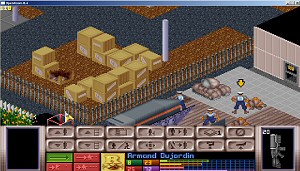
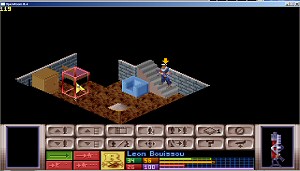
OpenXcom and many Others [XCOM series]
The X-Com series spawned a lot of remakes, clones and ports and I won’t discuss them here. A few commercial ones have been featured here recently but there are many more fan-projects out there. Let me point you to OpenXcom, a porting project which has a list of X-Com projects in its site’s sidebar.
These are only few of the endless number of remakes, the ones I had on my list to watch. And yes, the list is very biased towards open source and multi-platform games as it was compiled from a list of Linux games that I wanted to compile for the OpenPandora (if I should ever get mine..).
What remakes can you recommend?
Note: This is a guest post by evilazrael. evilazrael has been a Space Sector contributor since May 2012. See all evilazrael’s posts here.
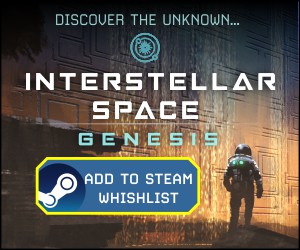
16 Comments
Related Articles:
- Master of Orion Inspired Beyond Beyaan Goes Open Source
- Xenonauts Leaves Early Access, Officially Released
- Beyond Beyaan: A Space 4X Game Engine [Kickstarter]
- Gearbox To Re-Release Homeworld 1 & 2 and HD Remakes
- Ur-Quan Masters HD – An HD Remake of Star Control 2

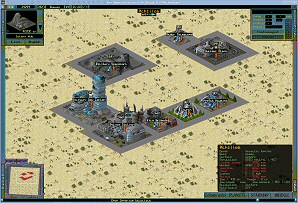
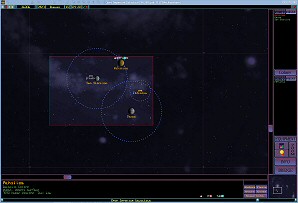
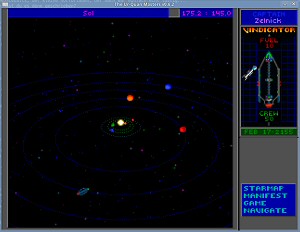
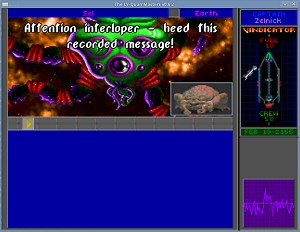
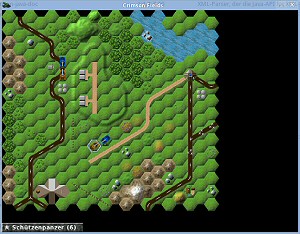
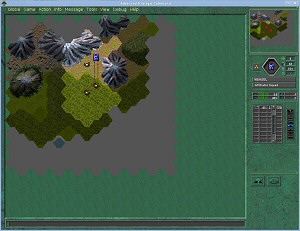
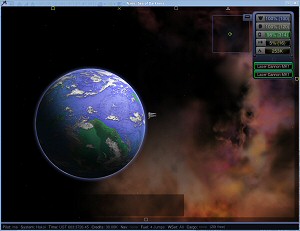
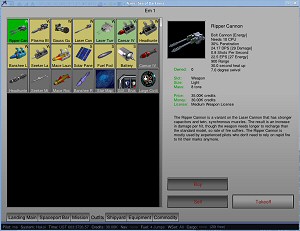
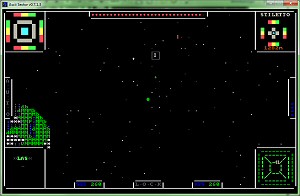
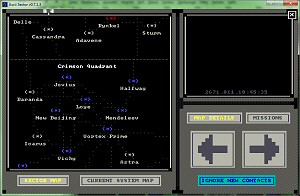
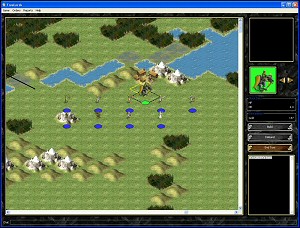
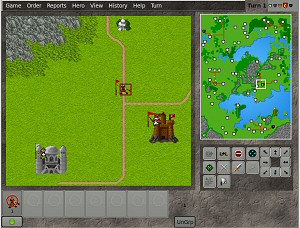
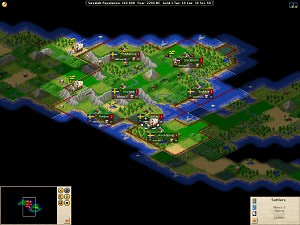
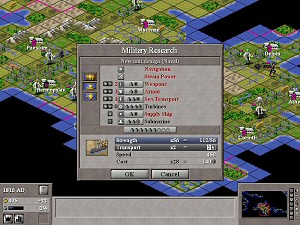
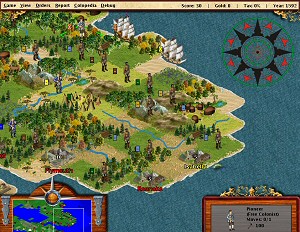
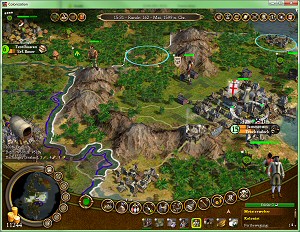
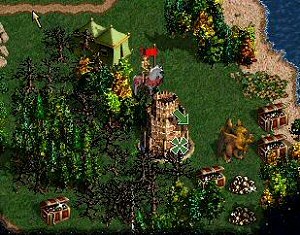
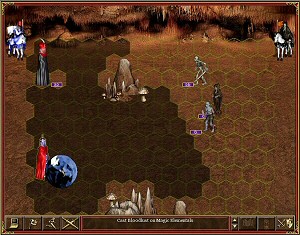
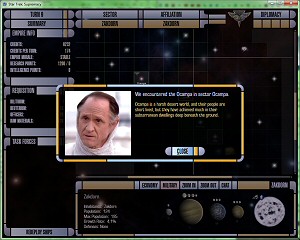
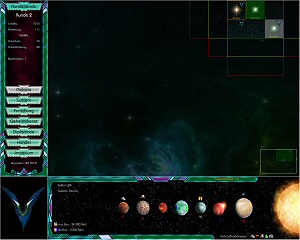
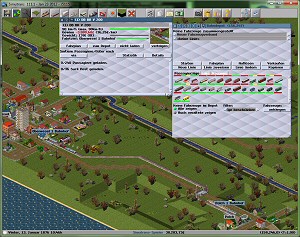
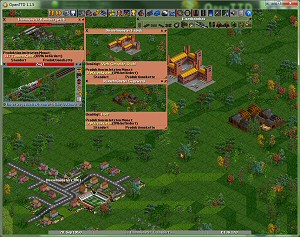
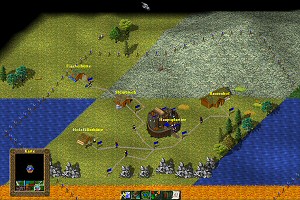
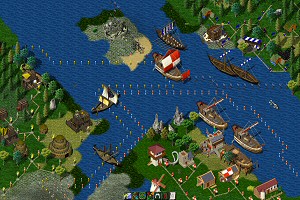
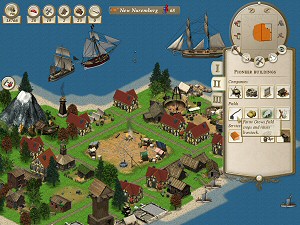
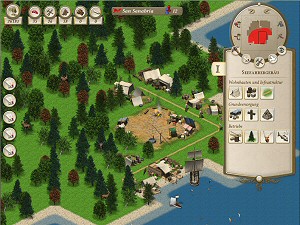
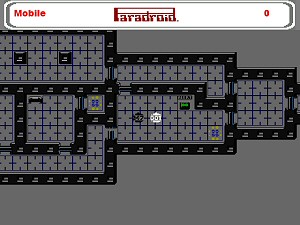
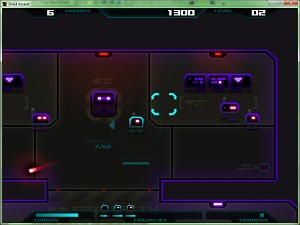
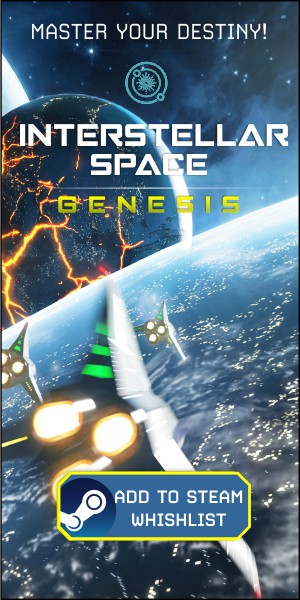





This is a great collection of open games. Some I recognize. Others are new to me.
Good god as soon as I saw Imperium Galactica I had flashbacks.
Damn it man, why was there never a third?!?
Damn it. It wont launch.
Which one?
Open-IG? Which OS do you use? And which Java Runtime?
I’m using windows 7, 64 bit, and I am not sure what you mean by Java runtime.
Do you mean the file I launched? If so, it was open-ig-0.94.420.jar, but the problem persists in the latest version.
Since paste bin is being a pain in the butt right now I’ve put the error report on another paste bin like website.
http://pastebin.ca/2154703
I almost forgot to mention X-Force Fight for Destiny, a very good xcom remake.
Did you download the launcher and double-clicked it in the explorer? When i “start” the launcher from the browser i get a lot of missing file errors. Did you switch to English as language?
I did not launch it from the browser, I clicked the file. It never asked for me to set a language; I downloaded the one that said it was the game.
Hi there, I see you had problems launching the game.
You need to download the Launcher (http://open-ig.googlecode.com/files/open-ig-launcher.jar) which will take care about downloading the necessary files, otherwise, you would need to download every visible file from the Downloads page manually.
There was a third but it took a different direction in the form of Haegemonia- Legions of Iron.
http://www.gamersgate.com/DD-HLOI/haegemonia-legion-of-iron
There was a third, but it was never finished.
But on the remains of IG III Nexus: The Jupiter incident was made. Well, not the same, but it’s still a great space simulation/tactics game :)
Also, there’s an available IG III demo:
http://www.moddb.com/games/nexus-the-jupiter-incident/downloads/imperium-galactica-iii-demo
hey there,
one minor correction to the “Birth of the Empires” game mentioned above, it already has an AI to play against and people say it’s quite tough to beat, especially on highest difficulty level (can be set in bote.ini file by replacing DIFFICULTY=EASY with ..=BABY or =NORMAL or HARD respectively IMPOSSIBLE in capital letters).
Star Trek Supremacy indeed does not have an AI in its 2009 latest release.
Oh i didn’t know that. I remember only that the games i played where quite boring and nothing happened.
yeah, that happens usually the first 10 turns if you happen to have bad luck with missing minor races in the star systems next to you. Otherwise there are races to be conquered or diplomatically convinced early in-game.
maybe you should take a quick look at this video from a bote player who posted it on a german gaming website: http://letsplayimpot.de/?v=23671 . There you see quite a lot of what the game is capable to offer.
Afterwards I recommend to take a closer look at my gameplay pre-alpha7 video over here: http://www.facebook.com/video/video.php?v=262177257206416 . There you can see quite in detail what you can possibly do at the beginning to have a quick start to get something going on in the game ;).
sorry, I chose the wrong reply link, it should have been a reply to what Evil Azrael said in reply one post above.
I so wanted to see Star Trek Supremacy go somewhere but have been disappointed is been stuck for the last 3yrs. I really liked BotF and wanted to see an updated version.